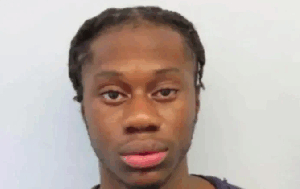By Kwame Okoampa-Ahoofe, Jr., Ph.D.
Mr. Herbert Mensah’s allegation that the National Democratic Congress (NDC) faction led by President John Evans Atta-Mills intends to fight off Nana Konadu Agyeman-Rawlings’ presidential nomination bid against the incumbent with a whopping campaign war-chest of $ 60 million (or GH¢ 90 million), is a jaded old game that was originally introduced into modern Ghanaian politics by late-former President Kwame Nkrumah and his so-called Convention People’s Party (CPP).
And, indeed, the first time that such gimmickry was successfully indulged, during the 1950s, the breakaway Nkrumah faction of the seminal United Gold Coast Convention (UGCC) had it in banner headlines that Dr. Joseph (Kwame Kyeretwie) Boakye-Danquah, the Doyen of Gold Coast and modern Ghanaian politics, had been offered a bribe in the equivalent sum of £ 25,000 (Twenty-Five Thousand Pounds Sterling) to stall, or unduly delay, Ghana’s vigorous push for self-governance.
Back then, the British who must have been quite pleasantly amused by such cheap patent lie, knowing the veritably intransigent stance and tenor of Dr. Danquah when it came to the fundamental human-rights issue of self-governance, neither confirmed nor publicly denied such a vicious and cynical charge by a fast-growing megalomania. Or, perhaps, the Crown deemed such ploy, primarily aimed at turning the masses of the Ghanaian electorate against the UGCC old guard, to be simply too darn petty and the purely internal problem of an emergent postcolonial polity. For, needless to say, while foresighted British leaders like Prime Minister Harold MacMillan had always known and suspected that it was only a matter of time before the English-speaking Empire disintegrated back into their original pre-colonial component parts, nevertheless, had not quite totally forgiven the first modern Ghanaian citizen, scholar, philosopher and thinker to dourly demand a handover of Gold Coast lands and political reins to those to whom the two rightly belonged.
Needless to say, solidly predicating his argument on the landmark Bond of 1844, Dr. Danquah had eloquently and incontrovertibly submitted that the terms of reference of “1844,” was for the British imperialists to “protect” the people of the proverbial “Colony” under a mutually beneficial pact that was very much in keeping with the temper of the times, and that the time had arrived to promptly review this century-old pact and to do the right and most logical thing.
Anyway, as the Doyen of modern Ghanaian politics later pointed out, by 1957, the terms of reference of the Bond of 1844 had been allowed by Britain to elapse by 13 years! In all probability, and in hindsight, the British appear to never have quite forgiven a rather brazen and British-educated colonial upstart who had presumed to pontifically instruct them on landed possessions that had been won with a quite remarkable spillage of English blood. The preceding notwithstanding, what makes the Herbert Mensah take on the old CPP gimmickry quite worthwhile is the fact it inadvertently points to the imperative need for transparency in Fourth-Republican Ghanaian political culture, especially where campaign finance laws, or the abject lack thereof, are concerned. In essence, the real problem does not actually border on whether, indeed, the Atta-Mills faction of the NDC intends to spend $ 60 million on its primary campaign in order to effectively ward off any challengers but, rather, the imperative necessity for the Ghanaian public at large to be apprised of the sources of such massive funding, and the terms and conditions under which such funding solicitation was formulated and implements.
This imperative, of course, goes for all the major Ghanaian political parties actively engaged in our national political process. And the latter had better begin now, with Election 2012 in the offing. In other words, the campaign committees of all major political figures involved in Election 2012 ought to be mandated by the National Electoral Commission (NEC) periodically, perhaps every three months, to declare the amounts of money solicited from both public and private sources, and the amounts actually spent, so far, by the respective campaign machines.
Needless to say, the preceding protocol must first be put in place before anybody, politician or private citizen, can begin to seriously talk about the need for public funding of legitimately constituted and registered political parties. For this is the only way to drastically reduce corruption in the application and/or appropriation of public funds.
In view of the Herbert Mensah angle to this discourse on the necessity of tracking campaign financing records, the historical angle cannot be ignored, which means that such tracking must be made retroactive to at least the 1991 campaign period, when the democratic culture of Ghana’s Fourth Republic officially came into effect. At this juncture, the fact of whether, indeed, the former Asante Kotoko Football Club chairman has possession of any audiotapes implicating President Mills in a shady campaign finance racket is far less relevant than the imperative need to ensuring, pronto, that henceforth a level-playing field will become the new modus operandi.
It is far less relevant because the Herbert Mensah allegation, some choose to call it a “revelation,” is primarily aimed at boosting the fortunes of Ghana’s only career first lady, Nana Yaa Konadu Agyeman-Rawlings, the latter’s quite curious bid to unseating the man knighted by her own husband, former President Jerry John Rawlings, as the best qualified NDC operative capable of both maintaining and massively enhancing the Rawlings legacy, whatever species of lamb chops this may be.
*Kwame Okoampa-Ahoofe, Jr., Ph.D., is Associate Professor of English, Journalism and Creative Writing at Nassau Community College of the State University of New York, Garden City. He is a Governing Board Member of the Accra-based Danquah Insttitute (DI) and the author, most recently, of “The Obama Serenades” (Lulu.com, 2011). E-mail: okoampaahoofe@optimum.net. ###
Opinions of Thursday, 19 May 2011
Columnist: Okoampa-Ahoofe, Kwame














